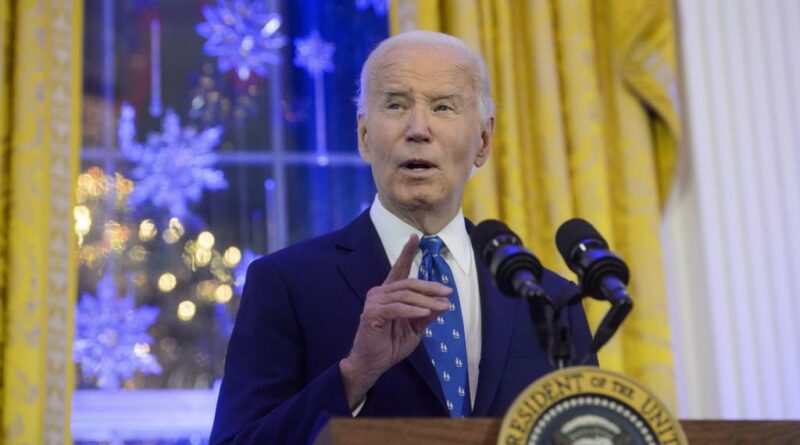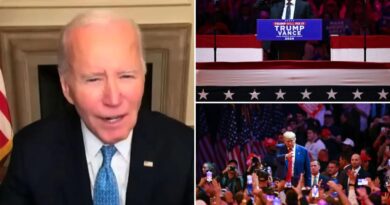Joe Biden Could Establish a Risky New Precedent with ‘Preemptive’ Pardons

Indications are mounting that President Biden is preparing to significantly alter the way presidential pardons are utilized by issuing “prospective” or “preemptive” pardons to political allies.
In spite of frequent denials from President-elect Donald Trump regarding any intentions of avenging perceived wrongs, stating that “success [is his] revenge,” there has been a push from Democratic leaders and commentators for potentially thousands of these pardons.
Although the threat of viable prosecution against key figures, such as members of the House’s Jan. 6 committee, is minimal, the implementation of “White Knight pardons” presents clear political advantages.
After numerous liberals anticipated the swift dismantling of democracy, fearing that adversaries would be targeted by the Trump administration, they are now grappling with the unsettling realization that democracy may endure without mass arrests.
The next alternative to an expected democratic failure is to assert that Biden’s series of preemptive pardons prevented it—helping to sustain that narrative.
This year, Biden’s pardon list has become the new “must-have” item, eclipsing traditional Inauguration Ball lists. An envy of pardons is spreading across Washington, as politicians and pundits vie for inclusion on the list of those likely to be pardoned by Biden due to their opposition to Trump.
A Perilous Precedent
However, this political maneuver carries significant consequences.
Preemptive pardons could become a standard practice, enabling presidents to pardon various categories of allies—and even themselves—to obstruct federal prosecutions.
This practice could offer presidents a way to erase the risk of prosecution for friends, donors, and associates, which may include self-pardons that implicitly criticize their political opponents.
Such a trend could lead to the disconcerting situation where every outgoing president pardons themselves and their administrative team, establishing a de facto immunity for serving in the executive branch.
Ironically, the Supreme Court has determined that presidents are immune from many of their decisions made during their time in office, which diminishes the need for such preemptive pardons. Similarly, members of Congress enjoy substantial constitutional protections under Article I, as do journalists and commentators under the First Amendment.
For over two centuries, we have functioned without such broad immunity. In my book “The Indispensable Right,” I explore times of intense political conflict and widespread arrests. Thomas Jefferson once criticized John Adams’ Federalist government as “the reign of the witches.”
Faith in the Constitution
Nonetheless, even during those turbulent eras, no president dared to take the steps that Biden is now considering.
At no point has any president gone as far as Biden appears poised to do.
Our constitutional framework provides overlapping protections for individuals against wrongful prosecutions and convictions. While it may not always function as swiftly as desired, it has proven resilient as the oldest and most stable constitutional system on record.
Some individuals seem eager to drastically redefine the pardon power to sustain a catastrophic narrative—one that the public clearly rejected in the last election.
If the alleged Trump “enemies list” cannot be substantiated, a Biden pardon list becomes a comparable substitute.
After years of misleading the American public regarding the influence-peddling controversy and his previous pledge not to consider a pardon for his son, Biden could cement his legacy through a profound dishonesty by transforming pardons into mere political favors.
In doing so, he inadvertently lowers the benchmarks and expectations for future presidents. Joe Biden may become the president that Richard Nixon only dreamed of being, explicitly clarifying that this power is not inherently presidential, but personal and political. And the media seems prepared to applaud him for it.
Jonathan Turley is the Shapiro Professor of Public Interest Law at George Washington University and the author of “The Indispensable Right: Free Speech in an Age of Rage.”



